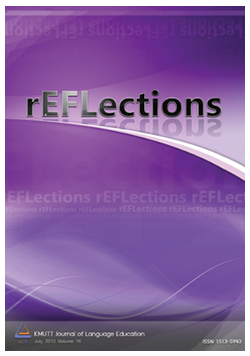No Non-Local English Teachers’ Contextualization of Intercultural Education in an EFL Setting
Main Article Content
Abstract
With globalization, intercultural education has become an integral component of English language education. Nonetheless, to ensure the relevance to the local setting, intercultural education may need to be more contextualized. With the aim of better understanding the contextualization of intercultural education, our study examined the discourse of 15 non-local English teachers working in private secondary schools in Bangkok, Thailand. The analysis of the participants’ discourse yielded four broad categories, with each category containing two or more themes. These categories showed different ways in which the participants contextualized intercultural education. The categories were 1) treatment of cultural lessons, addressing the issue of whether culture is treated as a body of knowledge, or if it aims for an intercultural and transformative experience; 2) cultural focus, which dealt with the integration of local and/or foreign cultures; 3) sources for cultural lessons, which looked at where intercultural lessons came from; and 4) reasons for integrating culture, which examined whether lessons were done for curriculum compliance, or if teachers had other personal motivations. Because the manner in which intercultural education was contextualized lied mostly with the parameters from which the participants operated, this study calls for further examination on non-local English teachers’ professionalism, especially those working in international schools within the region.


